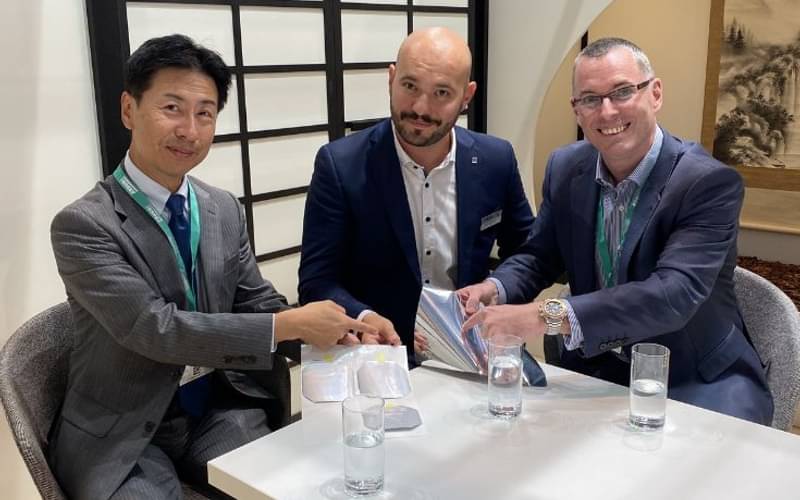A breakthrough in sustainable packaging at the K show
Industry leaders Bobst, Brückner, and Mitsui Chemicals have unveiled a groundbreaking innovation: a mono-material, recyclable retort solution with high barrier properties based on opaque metallisation at the K 2025.
29 Oct 2025 | By Treya Sinha
This development addresses a critical gap in sustainable flexible packaging.
Retort packaging, essential for preserving food at room temperature, has traditionally been a multi-layered structure, making it nearly impossible to recycle. The challenge lies in maintaining high barrier qualities under extreme temperatures during the sterilization process.
Nick Copeland, R&D director, barrier solutions at Bobst, highlighted the importance of this novel solution, stating it will be "easily recyclable in existing recycling streams" and represents "one of the final key challenges in sustainable flexible packaging."
Anrika Heermant, senior specialist at Mitsui Chemicals Europe, explained the difficulty in maintaining barrier properties in mono-material retort solutions due to high temperatures. Willi Lindemann, specialist inline coating, new technologies at Brückner, added that the industry previously believed metallized films could not withstand retort processes without corrosion or shrinkage.
The success of this collaboration stems from the combined expertise of the three companies. Bobst contributed its advanced opaque metallisation and AluBond technology, which enhances barrier, adhesion, and surface energy. Brückner provided innovative inline coating technology to create ultra-thin, stretchable, and heat-resistant barrier primers. Mitsui Chemicals developed key materials, including Takelac water-based polyurethane dispersion for enhanced barrier performance and heat resistance, and Admer for adhesion.
The partners have achieved proof of concept, demonstrating that the combined technologies create a recyclable solution that withstands the retort process and maintains its barrier qualities, with excellent results in Oxygen Transmission Rate (OTR), Water Vapor Transmission Rate (WVTR), and adhesion levels.
While the solution is not yet commercially available, the companies are actively working towards its full development and anticipate its use for various retort foods, such as wet pet food. This innovation is crucial for companies to comply with upcoming sustainability guidelines, like the Packaging and Packaging Waste Regulation, which will restrict mixed materials in certain retail settings.
Nick Copeland emphasised the success of the partnership, attributing it to the right combination of expertise, trust, and shared dedication to pushing boundaries in sustainable packaging.


